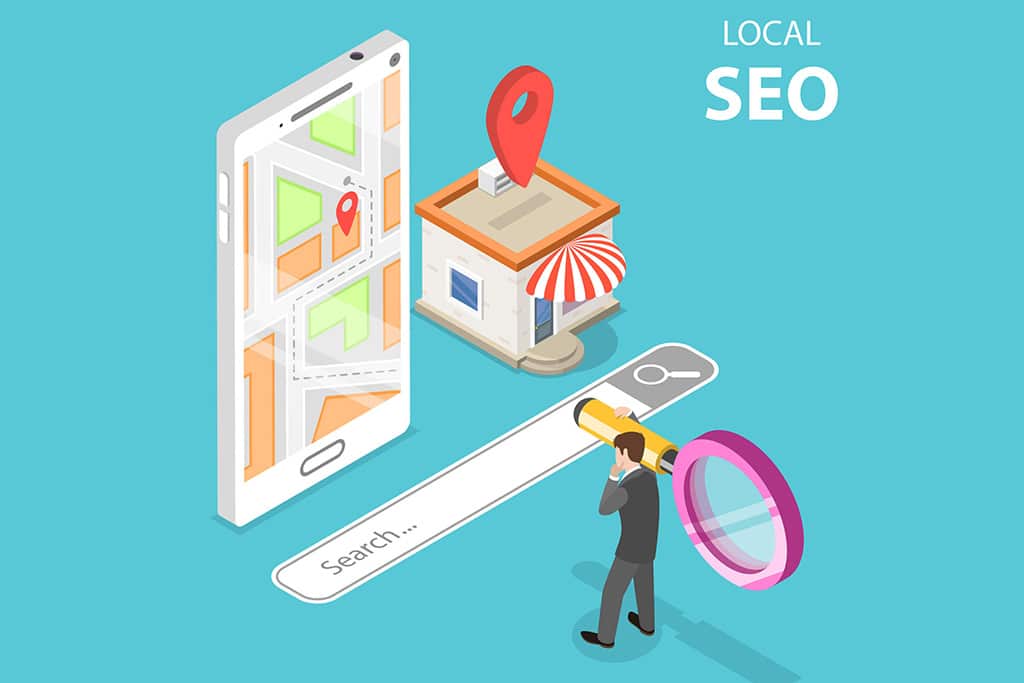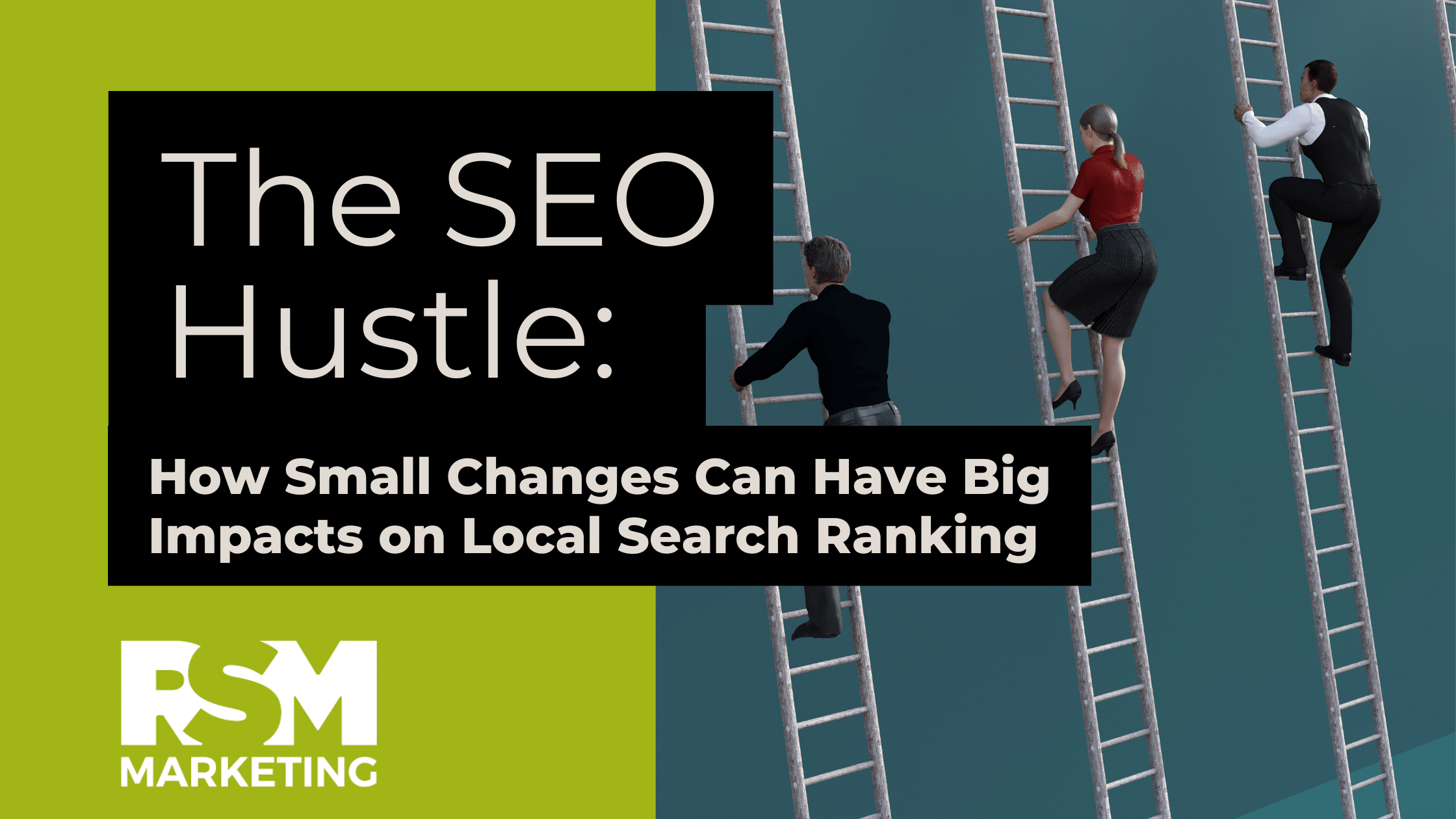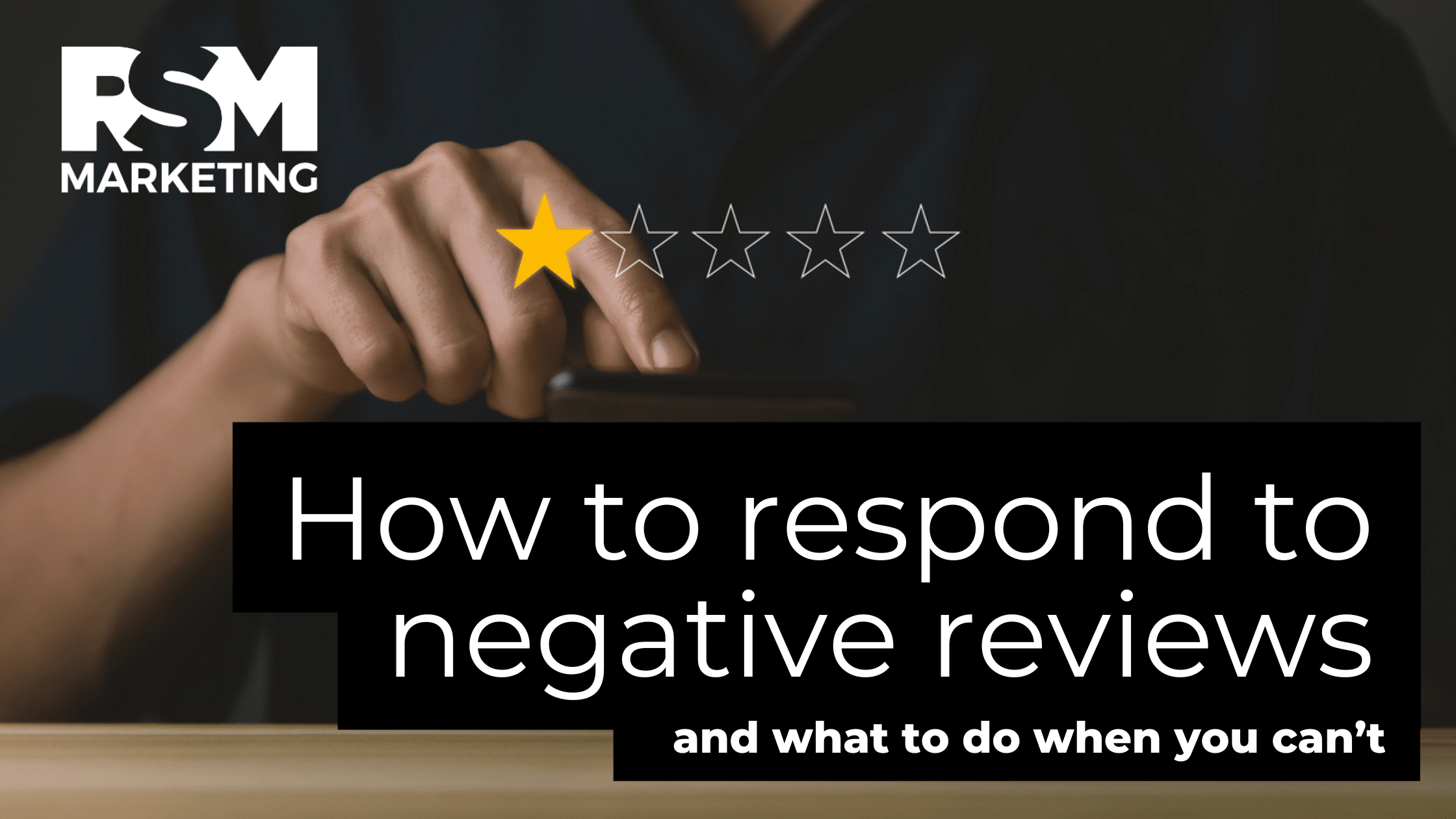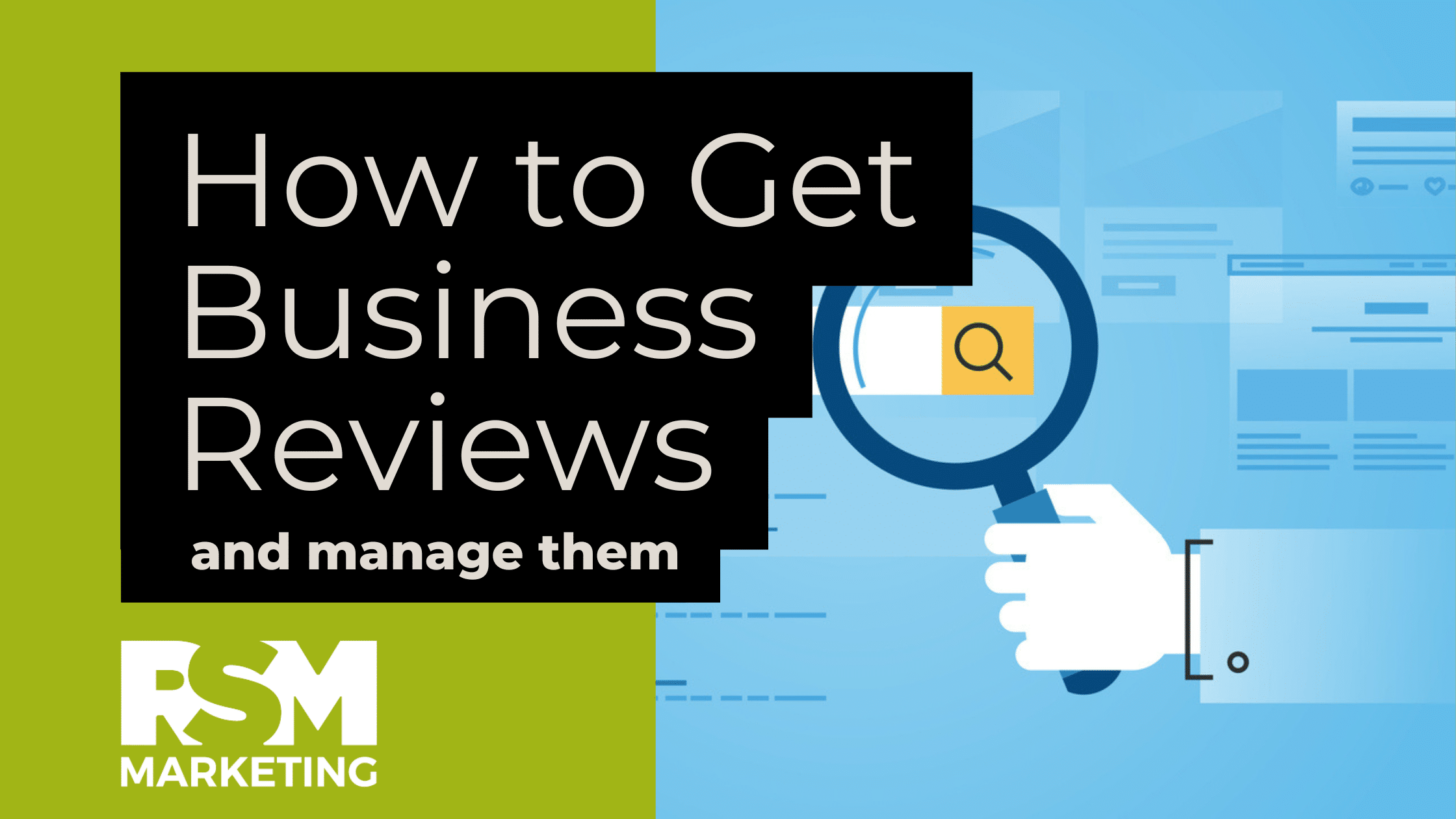You know local SEO is an important marketing strategy, but you have some questions before you dive in and invest time and money into it.
We get it. That’s why we’re writing this blog!
RSM Marketing rounded up the most commonly asked local SEO questions and answers them below. Take a look…
What is local SEO?
Local SEO is the practice of improving your business’s visibility in local organic search results.
Google prioritizes showing its users the most relevant information in response to their search queries. Therefore if they determine their user’s search intent is local, they will feature relevant local listings in the Map/Local pack.
Why does local SEO matter?
Sometimes, it’s best to let statistics speak for themselves. Here are some statistics you should consider when determining the value of investing in local SEO.
- 46% of Google searches are local searches
- 93% of their customers used local searches to find businesses in their area.
- Of this 93%, 34% conducted a local search every day.
- 42% of millennials that perform a local search visit a listing they find.
- 28% of nearby searches result in a purchase
- 76% of people who do a local search on a mobile device visit a business within 24 hours.
- 91% of consumers say that they read online reviews in local listings.
- 76% of consumers trust local reviews as much as the opinions of their friends and family.
- The use of the phrase “near me” in search queries doubled in 2020.
What is the difference between local SEO and general SEO?
The goal of both organic and local SEO is to improve rankings on the search engine results page (SERP).
The difference between local and organic SEO lies in user intent. The intent behind a local SEO search is to see listings nearby.
Additionally, the way we optimize for local SEO differs both on-page and off-page.
On-page we look for opportunities to reference your geographical location in the copy. We would also make sure to have a local landing page with a map embedded. Furthermore, we employ different technical strategies during local optimizations. One of the most common strategies is to employ local schema markup on a website we want to see rank higher in local search results.
Off-page we would look for opportunities to get your business information (name, address, phone number, and URL) featured in online directories.
Want more local SEO tips? Check out this article.
What are Google’s local ranking factors?
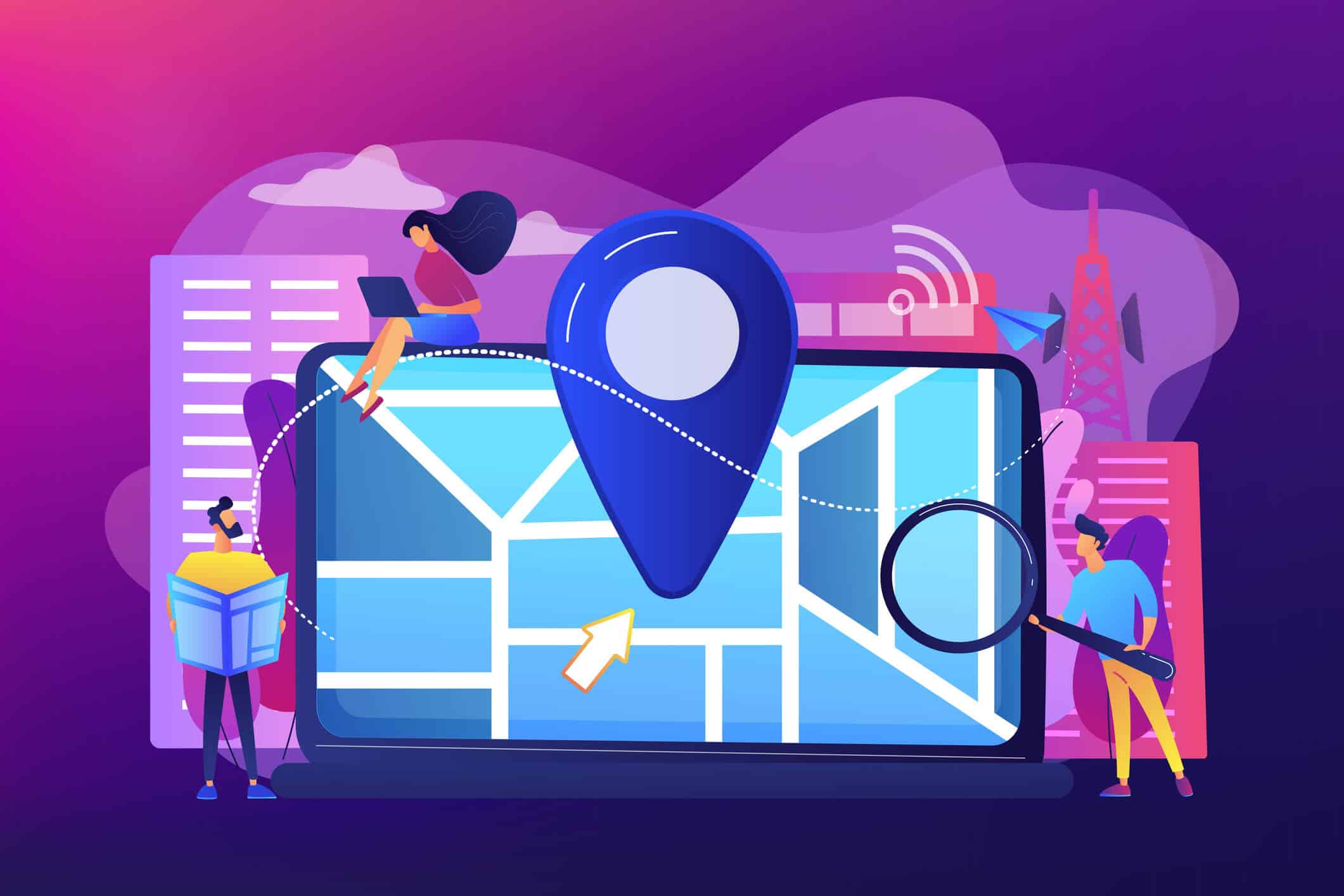
- Relevance
- Distance
- Prominence
Let’s dive in and discuss these a bit further…
Relevance
Relevance refers to how well a listing matches the search intent. To improve your relevance, Google recommends adding detailed local content to your site and Google Business listing.
Distance
The distance between the user and your business address. You can communicate this to Google in many ways but some of my favorites include: adding a local landing page and a footer with your address to your website, ensuring your NAP (name, address, and phone number) is consistent across the web and optimizing your Google Business listing.
Prominence
Prominence refers to how well known your business is. This is determined in a number of ways including, how many mentions and local citations your business has how many positive reviews your listing has, and your overall organic SEO rankings.
What does the acronym NAP stand for and how important is NAP for local SEO?
NAP stands for:
Name
Address
Phone number
This acronym is used all the time when discussing SEO because ensuring your NAP information is consistent across the web is a key component of ranking well in local searches.
Many SEO companies use data aggregation to push this information out to a variety of directories to garner local citations and improve rankings.
Is local SEO just for B2C companies?
NO WAY!
The goal of any local SEO campaign is to present a business as a local authority in its specific niche. This applies to both B2B and B2C companies. At RSM Marketing we have seen great success in our local B2B SEO campaigns.
How do I optimize for multiple locations?
If your business has multiple locations, it’s important you have a Google Business listing for each of them!
Additionally, you should create local landing pages for each location that contains an embedded map, the address, and the phone number.
Likewise, we encourage you to see local citations for each location.
Do I have to have a website to have a Google Business listing?
You do not!
You can claim your Google Business listing as long as your business has a physical address. In many cases, when you do not supply Google with a business URL they will link to a social media page, like a Facebook page for example.
How do I outrank my competitors?
By conducting solid competitor research.
To get started, Google your business category (ie: hair salon near me, bar and grill near me, account near me, etc) and see what listings show up in the Map Pack. Then, check out those listings to see what your competitors are doing to rank locally. You might ask yourself:
- What geographical information is present on their site?
- How is their site structured?
- What information do they offer consumers?
- Do they ask and/or showcase reviews from their clients?
- What kind of content do they have on their site?
Implement your competitor’s local strategy on your website, then ask yourself “how can I go one step further to blow them out of the water?”
What should I put on my local landing page?
At RSM, we not only encourage our clients to have local landing pages, but we also encourage them to optimize them so they contain some of the same information you would find on a Google Business profile. This includes:
- NAP information: Name, Address, and Phone number
- A map
- Driving directions
- A call or book now button
- Links to social feeds
- Photos
- Reviews
- Awards and recognitions
What do I need to do to optimize my Google Business listing?
Truthfully, this question could be a post in and of itself because there are so many things you can do to optimize your Google Business listing and show up higher in local search results. But for the sake of this blog, I’ll keep it brief.
First things first, if you haven’t already, please claim your Google Business listing. It’s free and easy!
- Go to the Google Business landing page
- Click the manage now button
- Put in your business name and select the address from the drop-down menu
- Click claim this business (or manage now if you’re working on a listing that has already been claimed)
- Choose a verification method- the most common method is postcard verification
After you’ve claimed your Google Business listing, you should optimize it! In my opinion, some of the most important things you can do to optimize your Google Business listing include:
- Check your NAP information and make sure it’s correct
- Update your hours of operation
- Select a business category
- Add photos
- Post regularly
- Respond to reviews (both positive and negative)
- Use the product catalog if applicable
Do reviews impact my local SEO rankings?
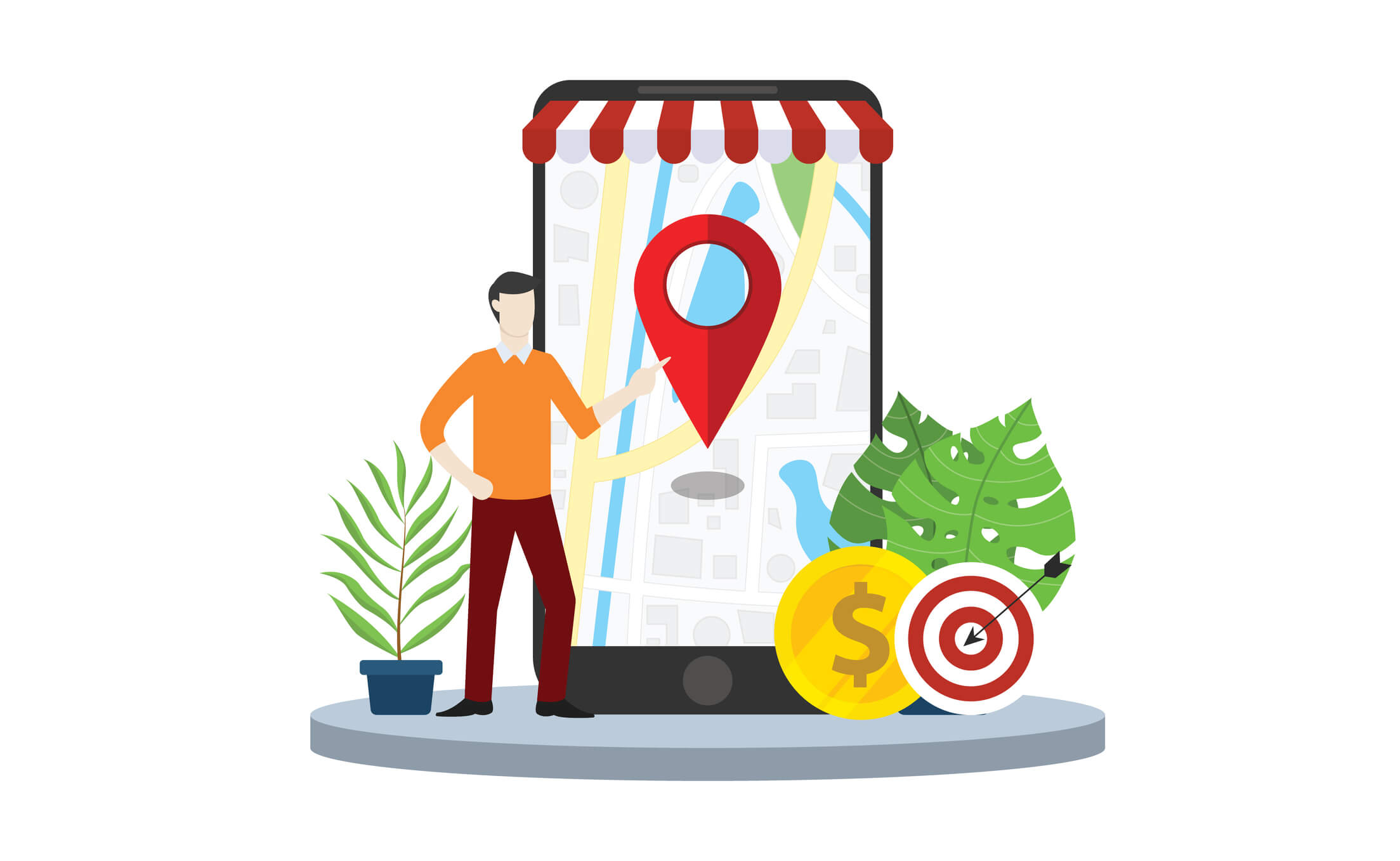
I mean, think about the last time you visited a restaurant or bought a new product without reading the reviews first…
Now if you run a customer-facing business it’s safe to assume you’ll get a bad review every now and then. The key is knowing how to respond to them. If you respond in a harsh way you may risk further damage to your online reputation.
Instead of responding emotionally, have a script ready to deal with those pesky negative reviews. It may be something as simple as “Thank you for your feedback. Please reach out to our business to discuss ways we can make this right. Your experience matters to us.”
Likewise, respond to positive reviews! Thank your customers for their support and feedback, then share this review across multiple platforms including social media.
Final Thoughts…
You’ve made it to the end of the blog and you now know how important local SEO is for the growth of your business, so make the investment!
Local SEO is something you can do yourself if you have the time and resources, but if you’re not the DIY type and are interested in pursuing local SEO services for your business, reach out to our sales team! We’d love to chat with you and find a marketing solution that will best meet your needs and help you rank better in local search results.

